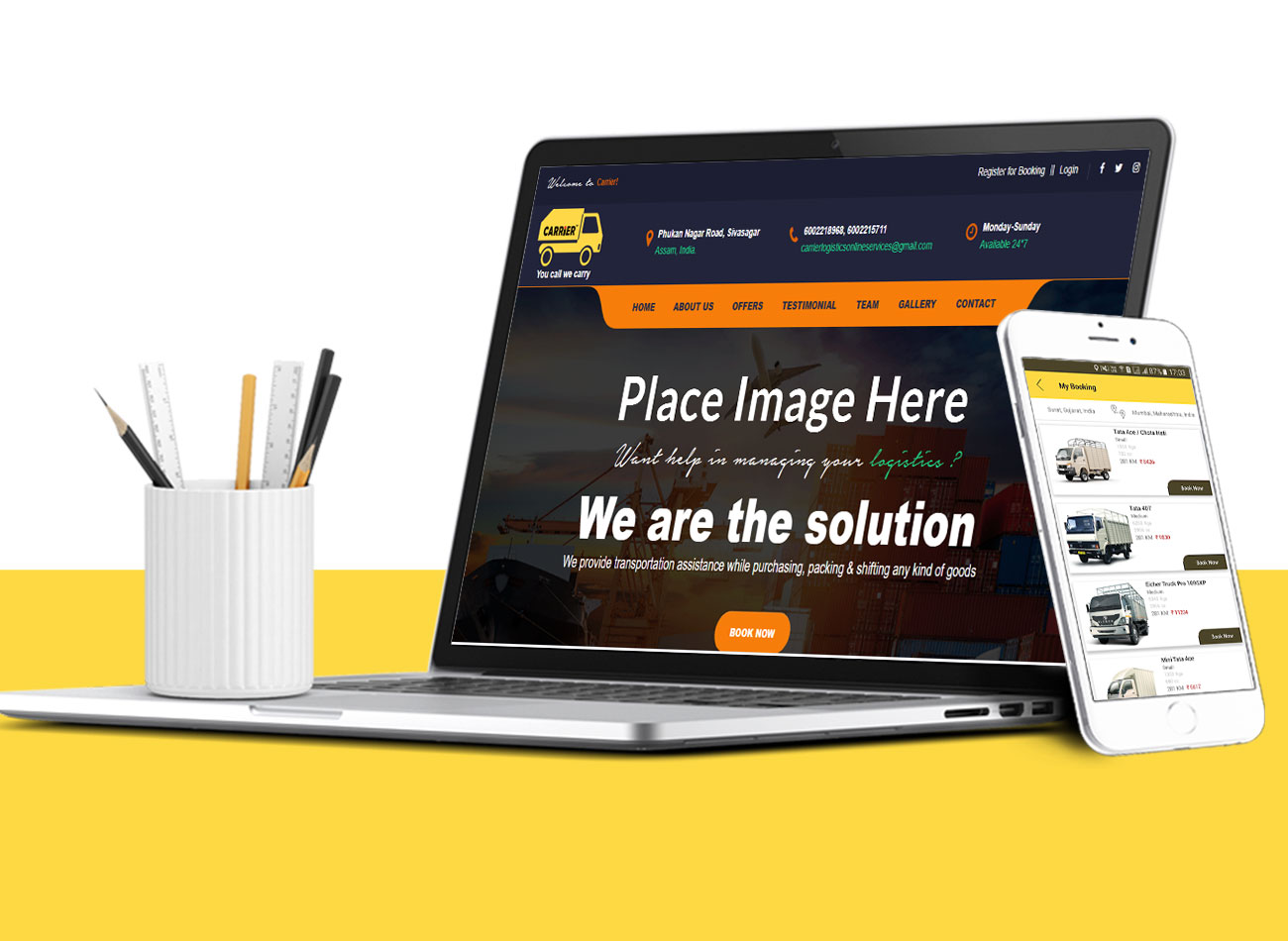Order Management
This feature streamlines the creation, modification, and tracking of orders for pickup and delivery, ensuring efficient logistics operations.
"Carrier" stands as a comprehensive Goods Transportation Service project committed to revolutionizing the logistics landscape. With a focus on efficient and reliable freight transportation, Carrier aims to streamline the movement of goods across various industries. Leveraging advanced technology, a robust fleet, and a customer-centric approach, the project aspires to provide seamless, timely, and cost-effective solutions for businesses, ensuring the smooth flow of goods from point A to point B. Carrier's dedication to operational excellence, transparency, and customer satisfaction positions it as a pivotal player in the realm of modern logistics and transportation services.
Technologies : TypeScript, React with Redux, Kotlin.
Services :Code Audit, Web App Development , Native Android App Development , Maintenance.
The project "Carrier-Goods Transportation Service" sounds like it involves providing transportation services for goods. If you're referring to challenges related to this project, they could vary based on various factors such as logistics, operational efficiency, market competition, regulatory compliance, technology adoption, sustainability, and customer satisfaction.
Logistics Optimization : Efficient logistics optimization is critical for ensuring timely and cost-effective transportation of goods. This involves intricate planning to determine the most efficient routes, taking into account factors such as distance, traffic patterns, delivery schedules, and vehicle capacities. By leveraging advanced routing algorithms and real-time data analytics, companies can optimize delivery routes, minimize fuel consumption, and improve overall operational efficiency. Additionally, implementing dynamic routing capabilities allows for adjustments to be made in response to unforeseen events, ensuring that goods reach their destinations promptly while maximizing resource utilization.
Supply Chain Disruptions: Supply chain disruptions, ranging from natural disasters to unforeseen road closures, can significantly impact transportation operations. To mitigate the impact of these disruptions, companies need robust contingency plans and real-time visibility into their supply chain networks. By leveraging advanced predictive analytics and supply chain management systems, businesses can anticipate potential disruptions and proactively adjust their transportation routes and schedules. Additionally, establishing strong partnerships with alternative transportation providers and implementing agile logistics strategies enables companies to quickly adapt to unexpected events and maintain continuity in their supply chain operations.
Technology Integration: Integration of technology plays a pivotal role in enhancing the efficiency and effectiveness of transportation services. This involves implementing transportation management systems (TMS), GPS tracking systems, telematics, and electronic logging devices (ELDs) to streamline operations and improve visibility into the transportation process. By integrating these technologies, companies can optimize routing and scheduling, track shipments in real-time, and improve communication with drivers and customers. Additionally, leveraging data analytics and predictive modeling allows for better demand forecasting and resource allocation, enabling companies to make data-driven decisions that enhance operational performance and customer satisfaction.
Safety and Compliance: Ensuring the safety of goods in transit and compliance with transportation regulations is paramount. This involves implementing safety protocols for loading and unloading goods, securing cargo during transit, and adhering to regulations regarding weight limits, hazardous materials, and driver hours of service. Safety training for drivers and regular vehicle inspections are essential components of safety and compliance efforts.
For the project "Carrier-Goods Transportation Service," technical challenges play a significant role in ensuring the smooth and efficient operation of the transportation service. Here are some technical challenges that may arise:
Developing mobile applications and digital platforms for drivers, customers, and logistics personnel to facilitate communication, order management, real-time tracking, and transportation processes.
Integrating ADAS technologies, such as lane departure warning systems, collision avoidance systems, and adaptive cruise control, into vehicles to enhance driver safety, reduce accidents, and improve overall fleet efficiency.
Ensuring the security and privacy of sensitive data, including customer information, delivery schedules, and route plans, by implementing robust cybersecurity measures and compliance with data protection regulations.
The scope of the "Carrier-Goods Transportation Service" project includes the development and deployment of a comprehensive transportation service tailored for the efficient and reliable movement of goods. This encompasses defining the range of goods to be transported, outlining operational processes such as order management, routing, dispatching, and tracking, establishing the technological infrastructure including transportation management systems and tracking devices, managing the fleet of vehicles, ensuring compliance with regulatory standards, enhancing the customer experience through transparent and responsive service, conducting market analysis to identify target segments and growth opportunities, managing finances to ensure profitability, addressing potential risks and challenges, and implementing quality assurance measures to monitor and improve service performance.

Technical challenges in a project aimed at "Empowering Artistry" can range from infrastructure to functionality. Here are some common technical hurdles and possible solutions:
This feature streamlines the creation, modification, and tracking of orders for pickup and delivery, ensuring efficient logistics operations.
Provides live tracking of vehicles and shipments, offering real-time visibility into transportation operations for enhanced efficiency and customer satisfaction.
Handles billing processes, generates invoices, and tracks payments, ensuring accurate and timely billing for transportation services rendered.
Manages customer interactions, orders, and communication channels, fostering strong customer relationships and efficient order processing.
A comprehensive platform that integrates order management, routing, dispatching, and tracking functionalities to streamline transportation operations.